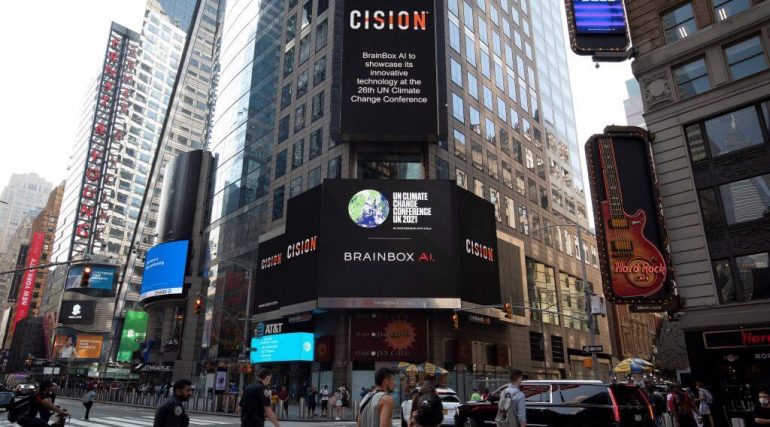Montreal’s BrainBox AI is working with an American Internet of Things (IoT) company to help commercial buildings lower their energy consumption and carbon footprint.
BrainBox announced September 14 that it is partnering with KMC Controls.
BrainBox’s solution uses deep learning, cloud-based computing and autonomous decision making to predict a building’s thermal load, then enables the HVAC system to operate autonomously. Now, BrainBox is integrating its solution with KMC’s platform.
Over the last seven years, KMC has developed the KMC Commander, a smart building platform for commercial buildings of any size. KMC’s solution collects data from buildings from sensors, devices, controllers, and building systems, and then sends that data to the cloud.
Rising emissions from buildings are a concern as they contribute to the climate crisis, and impede the ability of countries to meet their Paris Agreement targets.
KMC then tracks and triggers the data based on user preferences, while making it available on any device with an internet connection.
As part of the KMC Commander ecosystem, BrainBox can begin taking in a building’s data more easily, learning its performance and behaviors, and proactively applying its AI-based changes to the system faster than ever before.
BrainBox claims its software results in savings in total energy costs of up to 25 percent, along with a 20 to 40 percent reduction in carbon footprint. The firm is the only Canadian company chosen for the Innovation Showcase at the 26th United Nations Climate Change Conference in Glasgow in November.
Rising emissions from buildings are a concern as they contribute to the climate crisis, and impede the ability of countries to meet their Paris Agreement targets.
“Rising emissions in the buildings and construction sector emphasize the urgent need for a triple strategy to aggressively reduce energy demand in the built environment, decarbonize the power sector and implement materials strategies that reduce lifecycle carbon emissions,” said Inger Andersen, executive director of the UN Environment Programme (UNEP), in 2020.
A release from the UN Environment Programme cited that while global building energy consumption remained steady year-on-year, energy-related C02 emissions increased to 9.95 gigatons of CO2 in 2019. The programme said the increase came from “a shift away from the direct use of coal, oil and traditional biomass towards electricity, which had a higher carbon content due to the high proportion of fossil fuels used in generation.”
When adding emissions from the building construction industry on top of operational emissions, the sector accounted for 38 percent of total global energy-related CO2 emissions, according to the UN programme.
RELATED: BrainBox AI launches software to enable self-sustaining commercial buildings
What is a problem globally is an opportunity for BrainBox. The company says its solutions are installed in over 100 million square feet of commercial space, and BrainBox has distribution partnerships in Australia, the United Kingdom, and Ireland.
Founded in 2017, the startup developed its AI technology in collaboration with the US Department of Energy’s National Renewable Energy Laboratory, IVADO, and several Montreal-based universities, including École de technologie supérieure.
In April 2020, BrainBox raised a $12 million CAD pre-series A round, often used if a startup is unable to raise a Series A round, or if founders are looking to achieve certain milestones, and decide to postpone a Series A financing.
While BrainBox is not alone in the space, Toronto-based Parity has yet to reach the geographic scale of its competitor. Like BrainBox, Parity uses AI to eliminate waste in buildings, and promises 20 to 30 percent in energy savings. But whereas BrainBox is across several continents, Parity has only expanded to the US.
Parity received $1.25 million in venture debt from Silicon Valley Bank in 2019. The funding came after securing $5 million from cleantech venture fund ArcTern Ventures, which is backed by the Canadian government’s Venture Capital Catalyst Initiative and OMERS, the owner of one of the world’s biggest property firms, Oxford Properties.
Back at BrainBox, Frank Sullivan, the company’s chief commercial officer, said: “Now more than ever, it’s crucial for buildings to decrease their carbon footprint. By combining that goal with a significant reduction in energy costs, BrainBox AI is helping prepare the commercial real estate industry for a greener future without a large capital commitment.”
UPDATE 17/09/2021: This story has been updated to reflect new square feet of commercial space numbers BrainBox AI shared with BetaKit after publication.
Image source BrainBox AI via website

